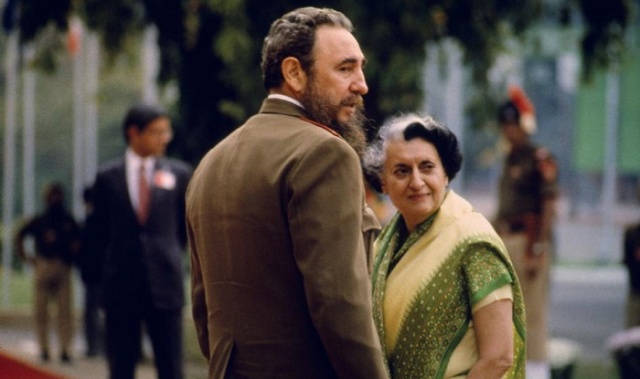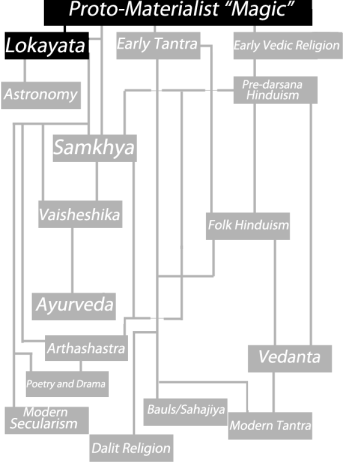
Fidel Castro and Indira Gandhi. Image Source: India.com

Fidel Castro and Indira Gandhi. Image Source: India.com

This chart doesn’t represent every possible influence between the subject categories, just those relating to Lokayata’s influence. Each post will start with this chart, darkened to signify which relationships will be explored in that post.
This will be the first in a series of posts exploring the hidden role of Lokayata, and closely related forms of materialism, in Indian history and philosophy.
Reconstructing the influence of a dead school of philosophy is a difficult task, made all the more difficult in the case of Lokayata, where none of the original source material has survived. We are left to rely on the few fragmentary quotations, which pass on to us exclusively from critics of the school. The following posts rely heavily on the work of Debiprasad Chattopadhyaya, Dale Riepe, and Rasik Vihari Joshi, both in their analytical capacities, and in the collections of primary source fragments they’ve published.
In future posts I will examine the proto-materialist origins of Lokayata, Tantra, and Vedic religion, the impact of Lokayata on the orthodox darsanas, the impact on social and physical sciences, the impact on culture and art, and the 20th century revival of interest in Lokayata. But this first post will simply be an overview of the remarkable characteristics of Lokayata.
Core Features of Lokayata
Though Lokayata (also known as Carvaka, or Brihaspati Darsana) changed over time the main features were as follows: